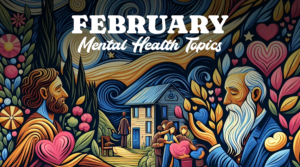
September is recognized as Suicide Prevention Month and National Recovery Month, making it an important time to reflect on the unique mental health challenges faced in law enforcement. Officers operate in high-stress environments every day—shift work, exposure to trauma, and the constant demand for quick decisions. This takes a toll not only on physical health but also on mental resilience.
What’s most important to remember: protecting your mind is protecting your mission. Mental wellness isn’t an optional extra—it’s the foundation of readiness, resilience, and safety.
Why Mental Wellness Matters
Law enforcement officers experience higher-than-average levels of stress compared to most professions. Left unchecked, this can lead to:
● Physical strain such as sleep disruption, fatigue, and illness.
● Mental strain including depression, anxiety, and post-traumatic stress.
● Elevated suicide risk, which tragically remains a leading cause of officer deaths.
The good news is that prioritizing wellness can make all the difference. Building resilience, strengthening peer and family support systems, and encouraging open conversations about mental health create healthier officers, safer communities, and stronger teams.
Recognizing the Warning Signs
Struggles with mental health often show up in subtle ways. Common warning signs include:
● Withdrawal from peers and loved ones
● Sudden mood or behavior changes
● Increased fatigue or lack of concentration
● Changes in eating or sleeping patterns
It’s easy to dismiss these as “normal stress,” but small red flags should never be ignored. If you notice these shifts in yourself or others, it’s time to start a conversation. Sometimes, one question—“Are you doing okay?”—can save a life.
Tools and Resources You Can Use
This September, several tools are available to help officers strengthen resilience and create supportive environments:
● Building Resilience Poster – A quick visual reminder of daily wellness practices.
● Empowering Support Systems Webinar – Practical tips on how to recognize struggles in peers and how to start supportive conversations.
● VALOR Training – A robust set of online courses covering officer safety, resilience, and preparedness.
● Action for Happiness Calendar – A fun, everyday tool with simple actions to boost positivity and mental well-being.
Each of these resources encourages practical, small steps that can lead to lasting improvements in mental wellness.
Celebrating Recovery Month
September also marks National Recovery Month, hosted by SAMHSA. This year’s theme is “Recovery is REAL (Restoring Every Aspect of Life).” The campaign highlights the strength and hope found in recovery from mental health and substance use challenges.
The Recovery Month Toolkit includes graphics, social media templates, and stories of recovery that agencies can share to help reduce stigma and celebrate progress. It’s a reminder that recovery is not just possible—it’s happening every day.
Training Opportunities in September
In addition to these resources, VALOR is hosting several virtual trainings this month, including:
● Sept 9 – Safety Through Mental Wellness (focus on suicide prevention and officer well-being).
● Sept 16 – Safety Mindset & Preparedness (strengthening decision-making and personal safety).
● Sept 25 – Safety During Encounters (enhancing officer safety during public interactions).
These training sessions are free and designed to give officers practical strategies for staying safe and mission-ready.
Register here: VALOR for Blue
Closing: Protect Your Mind, Protect Your Mission
As we transition from summer into fall, it’s the perfect time to reflect, reset, and recommit to wellness. Choosing growth over burnout, resilience over exhaustion, and support over silence makes a difference not only in our own lives but in the lives of everyone we serve.
Mental wellness is not weakness—it’s strength. It’s the shield that allows officers to remain focused, resilient, and prepared for the mission ahead.
This September, take advantage of the resources available, start the conversations that matter, and continue building a culture of resilience and support. Because when you protect your mind, you protect your mission.